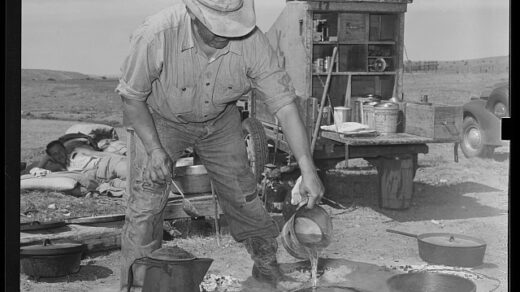There are thousands and thousands of resources available to people when it comes to applying for jobs. I’m talking about all those videos on youtube where “experts” weigh in on what to put on a resume, how to dress, what questions to ask, what questions to prepare for and so on. There are also free websites and paid websites and coaches and resume services. There are so many of them that an unemployed person might go broke and crazy just trying to decipher what to do when it comes to job hunting.
I recently had a job interview. Given my numerous jobs, it wasn’t my first interview. I don’t get all worked up and nervous about them the way I used to. That might not be the best approach to them these days as it can be easy for me to get a little too relaxed and be completely caught off guard. But on the other hand, it provides me with a level of calm that does allow me to be myself in the interview. I have developed a certain philosophy about how to approach interviews. Maybe it works, maybe it doesn’t, but I at least feel good about myself with this approach, whether I get the job or not.
- I need to interview the company/person just as much as they interview me. I somehow have to figure out if they are trying to hire a person or just trying to hire labor in the shape of a human. For too long I’ve felt like a factory worker in dress shoes, even though I hold multiple college degrees and am supposed to work in a profession where thinking is supposed to be valued. I’ve learned too late when I was just being hired to fill a seat. These are the work environments where you get the stink eye when you ask a process question or express an opinion. When I finally realized that this was a 2-way interview rather than a one-way interrogation, I felt like I had much more control over the situation.
- Let’s skip to the 4th date shall we? Yes, we have one shot to make a first impression. That is a true statement. And the very nature of our society and culture states that our first impressions should be good because gosh darn it…we want people to like us! This backfires fast in an employment situation. I will be spending a minimum of 40 hours per week working with the people in my interview and in the building that I’m interviewing in (typically). I’d like to skip some of the niceties that happen when people first meet and jump to some real stuff. This tends to make me and others a bit uncomfortable, but I’d rather air all that crap at the first meeting then marry into the position and not be able to get the divorce 3 weeks later when we both realize it’s not going to work out.
- Applying for a job and wanting the job don’t have to be the same. Things sound good on paper. Companies write job descriptions so they can present the position in the best possible way. Then I might apply for what sounds like a great opportunity. Once I interview, I may realize that the position has other parts and pieces to it that I want nothing to do with. That’s what interviews are for (refer to the first item on this list). Just because I apply and get an interview doesn’t mean that I would ultimately want the job. It also means that I don’t have to accept the job if it’s offered.
- Not getting an offer is ok. I’ve also learned that even if I want the job after the interview, I may not get offered the job. That can be disappointing (or maddening, or frustrating or depressing or…) but it may not be the end of the world. I recently got to a second round of a job interview that had occurred all via email and resume to that point, with the third round being an in-person interview. I didn’t get the in-person interview and was highly disappointed. But they weren’t my first choice of company and the position, while it had great aspects to it, wasn’t in a niche within architecture I want to work in. I just need a job and don’t want to go to be stuck in one of those places where everything’s terrible, so I’m judging what I’m willing to sacrifice for a decent (note I said decent, not perfect) job. The person interviewing may have heard something that made them realize I wouldn’t be a good fit and if that’s true then they saved me and them a lot of heartache.
- Being prepared is important. While I said that I now approach interviews more relaxed than I have in the past, it’s also important for me to be prepared. So I take time to look up the company and review their information. I will try to click through all the areas of their website and read the bios on the people I know I’m interviewing with as well as other bios if they are offered. I will try to find them on other parts of the internet too. Sometimes they get mentioned in articles related to a charity and, often times, companies will have social media feeds. I have found this information very helpful in past interviews. I’m also learning to prepare myself, not in the typical fashion, but in a more in-depth fashion. Perhaps it’s because I’m in a state of personal growth and change right now, but I am trying to answer the question “What do I want?” It’s not easy for me to figure that out right now, but I keep asking and sometimes little bits of an answer will make themselves clear to me. Basically, I feel like if I know myself better, I can find a better fit with a job.
The learned experience I’ve gained from having been laid off so many times and worked at so many different places is that losing a job or not getting one is not the end of the world. Sure it would be nice if things worked out and I’m not saying that any of it will be easy. It’s certainly an emotional roller-coaster. I may yet find myself donning khaki slacks and a red shirt and stocking shelves at Target, but the point is that I don’t have to stop trying. I can keep moving forward.



